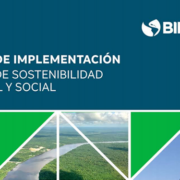The Second Five-Year Joint Action Plan and the deepening of relations between Argentina and China
Within the framework of the G20 summit held in Argentina in 2018, the Heads of State of Argentina and China signed 30 trade and investment agreements for the next five years. These agreements are part of the Second Five-Year Joint Action Plan between the two countries.
Below, we offer a google translate version of the original article in Spanish. This translation may not be accurate but serves as a general presentation of the article. For more accurate information, please switch to the Spanish version of the website. In addition, feel free to directly contact in English the person mentioned at the bottom of this article with regards to this topic.
On December 2, 2018, Argentine President Mauricio Macri and Chinese President Xi Jinping signed thirty trade and investment agreements within the framework of the second 2019-2023 joint action plan between our country and the People’s Republic of China.
The Second Five-Year Plan, like the first, seeks to strengthen the bilateral relationship and constitutes a roadmap with actions to be carried out in a number of areas. Most of the agreements are of an economic-commercial nature and include the areas of infrastructure, investments , finance, transport, mining, energy, science and technology, tourism, South-South Cooperation and electronic commerce.
Among the agreements, one of the most important is the formalization of the exchange of currencies (swap) with the Asian country for an amount of 8,500 million dollars in addition to the existing one of 11,000 million dollars.
The agreements that were already signed at the time of the announcement of the Second Plan were the Cooperation for Integral Agricultural Development Projects in New Irrigated Areas of the National Water Plan of Argentina, the Memorandum of Understanding on environmental protection and sustainable development, and the establishment of the Confucius Institute at the University of Córdoba.
Agreements have also been signed with companies such as the “Term Sheet” between the Ministry of Finance of Argentina and the Development Bank of China (CBD) for the creation of a Fund for an estimated amount of up to USD 1,000 million, in order to finance “Working Capital”; the Framework Agreement for the Promotion of Trade in Oil Products between the Ministry of Agribusiness Government and China Grain Reserves Group Ltd. Company (SINOGRAIN).
The following agreements were signed after they were announced: the Framework Cooperation Agreement between China Export & Credit Insurance Corporation (Sinosure) and the Bank of the Argentine Nation; the Addition to the Financing Contract for the “Rehabilitation of the Belgrano Cargas Railway”; the Financing Agreement between the Ministry of Finance of Argentina and the Development Bank of China (CBD) for the Acquisition of Rolling Stock for the Roca Eléctrico Railway and, finally, the Commercial Contract between the Ministry of Transportation and the Chinese company CRCC for the recovery of the San Martín Cargas Railway (Stage I: renewal and improvement of roads).
Finally, the following agreements are found:
- Agreement on the Extension of the Validity of the Memorandum of Understanding for the Establishment of a Strategic Dialogue Mechanism for Economic Cooperation and Coordination (DECCE);
- Agreement for the Elimination of Double Taxation with respect to Income and Property Taxes and the Prevention of Tax Evasion and Avoidance (CDI);
- Memorandum of Understanding for Strengthening Fiscal and Financial Cooperation;
- Memorandum of Understanding on the Promotion of Commercial and Investment Cooperation;
- Memorandum of Understanding on Strengthening Cooperation in the Infrastructure Sectors;
- SWAP expansion of currencies;
- Protocol of Phytosanitary Requirements for the Export of Argentine Fresh Cherries to China;
- Memorandum of Understanding on Electronic Commerce;
- Memorandum of Understanding on Cooperation in Trade in Services;
- Sanitary Protocol for the Export of Sheep and Goat Meat to China;
- Adaptation of the Health Protocol for the Export of Standing Horses to China;
- Convention between China and Argentina on preventing and combating the illicit traffic in cultural property, and the return of illegally transferred cultural property;
- Execution Plan for Cultural Cooperation between China and Argentina 2019-2023;
- Agreement on reciprocal recognition of higher education certificates;
- Agreement between the Chinese Academy of Social Sciences of China and the Secretariat of Science and Technology and Productive Innovation on the establishment of the virtual center of social sciences China-Argentina;
- Cooperation Framework Agreement between the National Radio, Film and Television Administration of China and the Federal Public Media System;
- Cooperation Agreement between the Media Group of China and Radio and Television of Argentina;
- Memorandum of Understanding on Cooperation between the National Supervisory Commission of China and the Ministry of Justice and Human Rights of Argentina;
- Memorandum of Understanding between the Ministry of Modernization Government and the Chinese Academy of Government.
The interest of the Asian country to make investments in Argentina is linked to the actions that it has carried out since the last years in the Latin American region, positioning itself as one of the main investors. The First Five-Year Plan between Argentina and China meant the strengthening of ties in their bilateral relations with the aim of developing a cooperation strategy. With the Second Plan, a further step is being taken in strengthening and deepening the bilateral relationship between the two countries.
For Argentina, the agreements represent an opportunity for development in the future, however, we must be cautious about the risks and the potential negative aspects of them, which can result in excessive increases in debt, negative impacts at the socio-economic level. environmental infrastructure projects, competitiveness problems in the commercial field or even a certain tendency towards the reprimacy of the Argentine economy towards which several of the agreements point. And do not forget to add, to all this, opacity and little transparency in terms of access to information that surrounds the vast majority of these agreements, whose general aspects may come to light, but not their details and specifications As for its implementation.
More info
- Analysis of the China-Argentina Integrated Five-Year Plan for Infrastructure Cooperation (2017-2021) – Fundeps
- Overview of Chinese investments in Latin America: the cases of Argentina, Colombia, Mexico and Peru – March 2017 – GREFI
- China pledges to respect human rights in its foreign investments – Fundeps
- Joint Action Plan between the Government of the Argentine Republic and the Government of the People’s Republic of China (2019-2023)
- What are the agreements signed between Argentina and China – El País digital (2018).
- Macri will sign 40 agreements with China and the 2-year joint action plan – Agendar Web (2018).
- Macri will sign an extensive trade agreement plan with China – La Nación (2018).
Author
Sofía Brocanelli
Contact
Gonzalo Roza, gon.roza@fundeps.org











